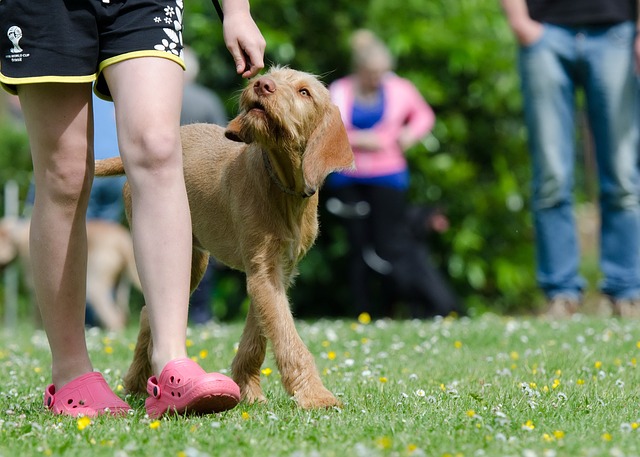
Welcoming a puppy into your home is a joyful occasion, filled with the promise of companionship and love. However, the journey to raising a well-adjusted dog begins long before they settle into their new surroundings. The early experiences your pup encounters are pivotal, influencing not just their behavior but their overall emotional health. During these formative weeks and months, a puppy’s interactions with the environment, people, and other animals help establish the framework of their personality and social skills. This dog guide will explore essential roles early experiences play in shaping your dog’s future behavior, offering insights into how you can create a nurturing atmosphere that supports positive development and fosters a happy, confident canine companion.
Socialization with Humans and Other Animals
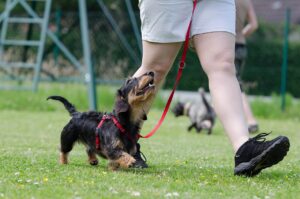 One of the most critical aspects of a dog’s early experiences is socialization. Puppies exposed to various people and animals in their formative weeks tend to develop better social skills. This exposure helps them learn how to interact appropriately, reducing the likelihood of fear-based behaviors or aggression later in life. Positive encounters with humans and other pets can foster a sense of confidence and security, making your dog more adaptable in different situations.
One of the most critical aspects of a dog’s early experiences is socialization. Puppies exposed to various people and animals in their formative weeks tend to develop better social skills. This exposure helps them learn how to interact appropriately, reducing the likelihood of fear-based behaviors or aggression later in life. Positive encounters with humans and other pets can foster a sense of confidence and security, making your dog more adaptable in different situations.
Exposure to Different Environments
Introducing your puppy to various environments is vital for its development. Whether it’s bustling urban areas, quiet parks, or busy households, each setting teaches your dog how to navigate new experiences. This exposure helps mitigate anxiety and fear of the unknown, allowing your dog to feel more comfortable in unfamiliar situations as it grows. By familiarizing them with diverse environments early on, you help create a well-rounded and resilient canine companion.
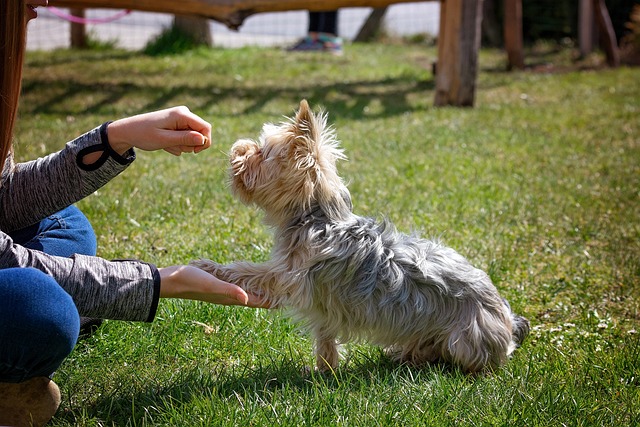
Encouragement of Positive Behavior
Early experiences play a significant role in shaping a dog’s behavioral responses. Puppies who receive consistent training and positive reinforcement from a young age learn to associate good behavior with rewards. This method encourages them to repeat those behaviors throughout their lives. Teaching commands, social skills, and appropriate play behavior during these early months lays the groundwork for a well-behaved adult dog.
Developing Coping Mechanisms
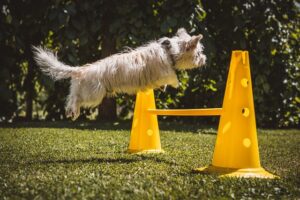 Early experiences can also help dogs develop essential coping mechanisms for stress and anxiety. Exposing puppies to varied stimuli, such as different sounds, sights, and textures, allows them to learn how to handle stressors effectively. This exposure prepares them for the unpredictability of life, teaching them that new experiences don’t have to be frightening. By guiding them through these moments, you equip your dog with tools to manage stress as they mature.
Early experiences can also help dogs develop essential coping mechanisms for stress and anxiety. Exposing puppies to varied stimuli, such as different sounds, sights, and textures, allows them to learn how to handle stressors effectively. This exposure prepares them for the unpredictability of life, teaching them that new experiences don’t have to be frightening. By guiding them through these moments, you equip your dog with tools to manage stress as they mature.
Forming Trust and Bonding
Trust and bonding are integral components of a healthy human-dog relationship. Positive interactions during a dog’s early life help establish a strong bond between the puppy and its owner. When a puppy is treated with kindness and patience, it learns to trust its human companion. This foundation of trust is crucial for future training and overall behavioral development, as dogs that feel secure in their relationships are more likely to be open and responsive.
The early experiences your dog undergoes are crucial in determining its future behavior and personality. By prioritizing socialization, exposure to different environments, positive reinforcement, coping mechanisms, and building trust, you set your canine companion up for a happy and well-adjusted life. Understanding the importance of these formative experiences allows you to provide the best possible start for your furry friend. Ultimately, being intentional about your dog’s early experiences is an investment in their behavior and the quality of your companionship. With the proper guidance, you can help your dog navigate the world with confidence and joy.


 The key to a healthy reef tank is to control the reef lighting schedule. Reef lights play a significant role in the growth of algae in your tank. To prevent algae overgrowth and maintain coral health, it’s essential to establish a proper lighting schedule. Moreover, you want to ensure that your reef lights are not left on for extended periods.
The key to a healthy reef tank is to control the reef lighting schedule. Reef lights play a significant role in the growth of algae in your tank. To prevent algae overgrowth and maintain coral health, it’s essential to establish a proper lighting schedule. Moreover, you want to ensure that your reef lights are not left on for extended periods. 
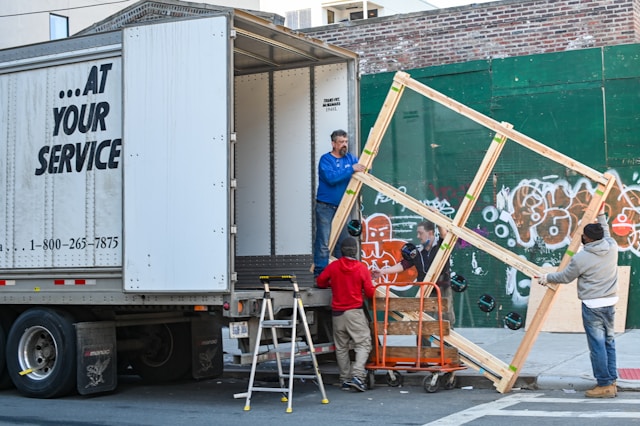






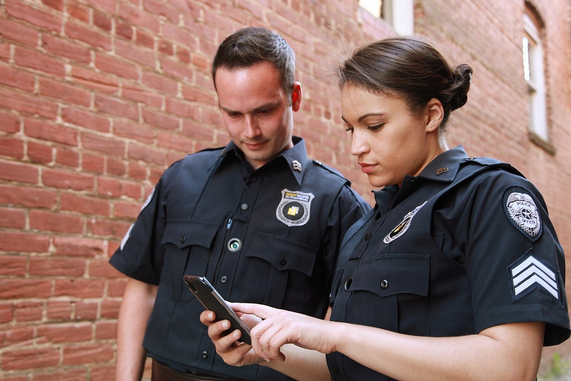
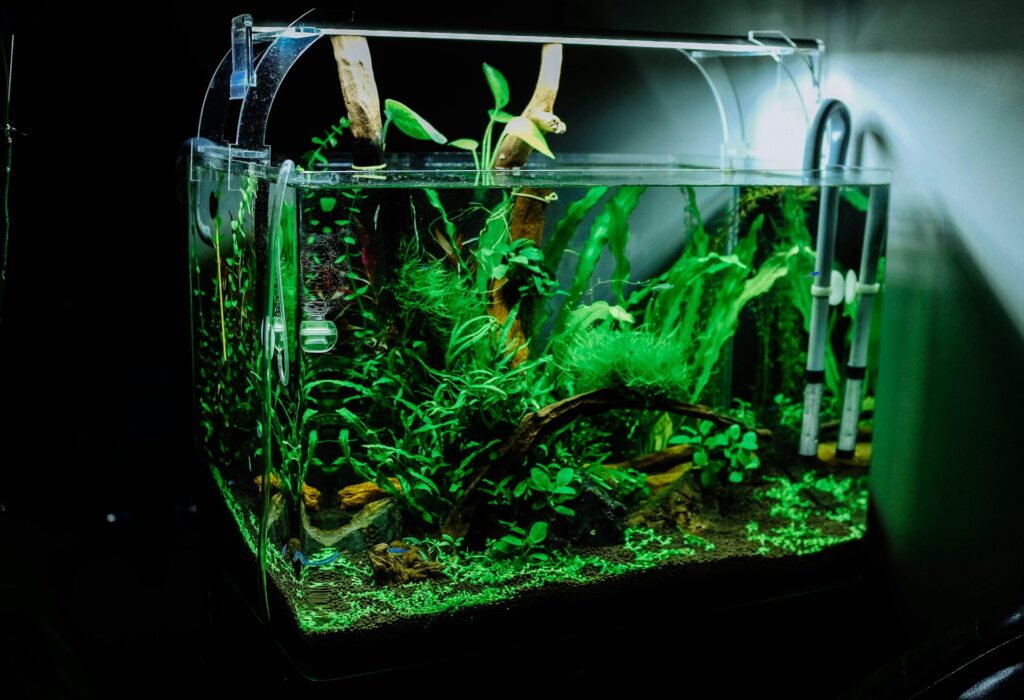
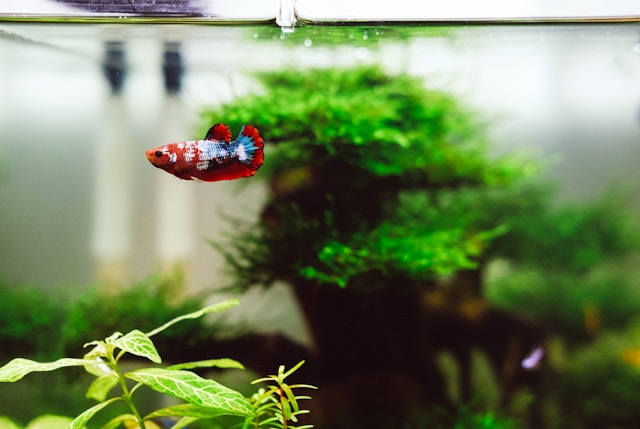
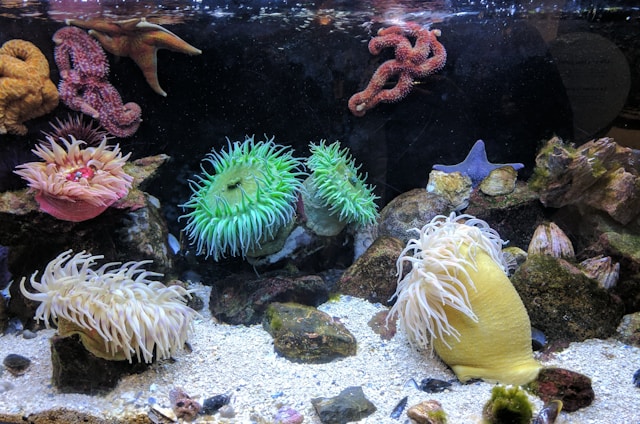

 Belgium is known for its delicious chocolate and has been making it for centuries. The country has over 2000 chocolatiers. The average Belgian consumes about 17 pounds of chocolate every year. That’s a lot of chocolate. So it’s no surprise that Belgium produces some of the best chocolate globally. One of the best chocolatiers in Belgium is a man named Pierre Marcolini. He is known for his handmade chocolate, containing no preservatives or additives. The main characteristic of his chocolate is that it is very smooth and melts in your mouth quickly.
Belgium is known for its delicious chocolate and has been making it for centuries. The country has over 2000 chocolatiers. The average Belgian consumes about 17 pounds of chocolate every year. That’s a lot of chocolate. So it’s no surprise that Belgium produces some of the best chocolate globally. One of the best chocolatiers in Belgium is a man named Pierre Marcolini. He is known for his handmade chocolate, containing no preservatives or additives. The main characteristic of his chocolate is that it is very smooth and melts in your mouth quickly. Aside from Belgium, Switzerland is home to many other great chocolatiers. Swiss chocolate is so good that it’s often used in other countries’ confectionary. The main difference between Swiss and Belgian chocolate is that the former has a higher cocoa content. Swiss chocolate is usually darker and more bitter than Belgian chocolate. But this also makes it more prosperous and more flavorful. One of the best Swiss chocolatiers is Lindt, known for its truffles and chocolate bars.
Aside from Belgium, Switzerland is home to many other great chocolatiers. Swiss chocolate is so good that it’s often used in other countries’ confectionary. The main difference between Swiss and Belgian chocolate is that the former has a higher cocoa content. Swiss chocolate is usually darker and more bitter than Belgian chocolate. But this also makes it more prosperous and more flavorful. One of the best Swiss chocolatiers is Lindt, known for its truffles and chocolate bars. If you love dark chocolate, then you’ll love Italian chocolate. That’s because the country has a higher percentage of cocoa than any other country in Europe. In addition, Italian chocolate is also known for its rich and creamy texture. It is because most Italian chocolatiers use whole milk in their recipes. One of the best Italian chocolatiers is Amedei. The company is known for its dark chocolate, which contains a high percentage of cocoa. But the taste is still very smooth and not bitter at all.
If you love dark chocolate, then you’ll love Italian chocolate. That’s because the country has a higher percentage of cocoa than any other country in Europe. In addition, Italian chocolate is also known for its rich and creamy texture. It is because most Italian chocolatiers use whole milk in their recipes. One of the best Italian chocolatiers is Amedei. The company is known for its dark chocolate, which contains a high percentage of cocoa. But the taste is still very smooth and not bitter at all.
 The first step to cleaning your gutters is to get an assistant. This person will be responsible for holding the ladder steady while you climb up and down. They will also be responsible for passing you the tools that you need. If you don’t have someone to help you, consider renting a power washer with a long hose. This will allow you to reach the gutters from the ground. Climbing a ladder is dangerous, so you must wear the right gear. Make sure that you wear closed-toe shoes with a good grip.
The first step to cleaning your gutters is to get an assistant. This person will be responsible for holding the ladder steady while you climb up and down. They will also be responsible for passing you the tools that you need. If you don’t have someone to help you, consider renting a power washer with a long hose. This will allow you to reach the gutters from the ground. Climbing a ladder is dangerous, so you must wear the right gear. Make sure that you wear closed-toe shoes with a good grip. One of the best ways to reduce how often you have to clean your gutters is to invest in gutter guards or covers. These devices attach to your gutters and prevent leaves, twigs, and other debris from getting into them in the first place. As a result, you’ll find that you only need to clean your gutters out once or twice a year rather than every few months. If you live in an area with many trees, gutter guards are essential. They’ll save you time and frustration by keeping your gutters clean throughout the year.
One of the best ways to reduce how often you have to clean your gutters is to invest in gutter guards or covers. These devices attach to your gutters and prevent leaves, twigs, and other debris from getting into them in the first place. As a result, you’ll find that you only need to clean your gutters out once or twice a year rather than every few months. If you live in an area with many trees, gutter guards are essential. They’ll save you time and frustration by keeping your gutters clean throughout the year.
 One of the best things about fashion is that it’s meant to be shared. So when you find something you love, don’t be afraid to show it off! Fashion influencers are constantly posting new outfit ideas and inspiration on their social media accounts, so make sure you’re following them so you can see what’s new. And if you find an outfit you love, don’t be afraid to share it with your friends. They’ll appreciate the inspiration.
One of the best things about fashion is that it’s meant to be shared. So when you find something you love, don’t be afraid to show it off! Fashion influencers are constantly posting new outfit ideas and inspiration on their social media accounts, so make sure you’re following them so you can see what’s new. And if you find an outfit you love, don’t be afraid to share it with your friends. They’ll appreciate the inspiration.
 The first thing you need to do is consider the room’s needs. What are you using the space for? If you want to block out sunlight from a bedroom, blackout blinds would be a good choice. If you’re going to darken a living room for movie night, then some thick curtains might be better.
The first thing you need to do is consider the room’s needs. What are you using the space for? If you want to block out sunlight from a bedroom, blackout blinds would be a good choice. If you’re going to darken a living room for movie night, then some thick curtains might be better. Window blinds don’t need to be the focal point of your room. When choosing window blind colors, consider how they will fit with other elements in the room that have already been purchased or selected for you since you moved into your home. For example, if a rug was previously purchased for this room and its primary color is brown, you might want to choose a similar color for your window blinds.
Window blinds don’t need to be the focal point of your room. When choosing window blind colors, consider how they will fit with other elements in the room that have already been purchased or selected for you since you moved into your home. For example, if a rug was previously purchased for this room and its primary color is brown, you might want to choose a similar color for your window blinds.
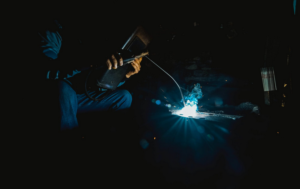 Practice your welding skills on scrap metal before you start your project. You’ll be able to work out any kinks in your technique and learn what settings you need for different types of metal.
Practice your welding skills on scrap metal before you start your project. You’ll be able to work out any kinks in your technique and learn what settings you need for different types of metal.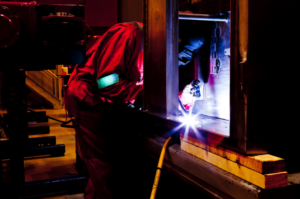 Set up a work area with all of your tools and materials in one place. It is much easier to keep track of everything if it’s all in one place. When you need an item, like a welding tip or grinding disk, you can access them easily.
Set up a work area with all of your tools and materials in one place. It is much easier to keep track of everything if it’s all in one place. When you need an item, like a welding tip or grinding disk, you can access them easily.
 Customer Service Crew – The first people you may deal with when looking for the right house moving company is the customer service crew. You talk to them over the phone and are the first to greet you when you go to their office. Customer service should always be friendly, competent, and welcoming. You can know initially the kind of service a company has by your interactions with its customer service. You can always end your negotiations if you find a company’s customer service below par.
Customer Service Crew – The first people you may deal with when looking for the right house moving company is the customer service crew. You talk to them over the phone and are the first to greet you when you go to their office. Customer service should always be friendly, competent, and welcoming. You can know initially the kind of service a company has by your interactions with its customer service. You can always end your negotiations if you find a company’s customer service below par.
 Looking shredded and ripped means that the fat percentage in the body is very low. And to achieve that, your diet must contain foods that promote muscle growth, not storing fat.
Looking shredded and ripped means that the fat percentage in the body is very low. And to achieve that, your diet must contain foods that promote muscle growth, not storing fat.  To get the shredded and ripped look, your workout routines must be effective and efficient. It must combine both cardio and strength training according to your body build. If you’re an ectomorph, you will need to put more cardio. For mesomorph people, you are blessed with a naturally muscular build. Therefore, your workout routines must consist of cardio and strength training in a balanced portion. As for endomorph, cardio should be your priority.
To get the shredded and ripped look, your workout routines must be effective and efficient. It must combine both cardio and strength training according to your body build. If you’re an ectomorph, you will need to put more cardio. For mesomorph people, you are blessed with a naturally muscular build. Therefore, your workout routines must consist of cardio and strength training in a balanced portion. As for endomorph, cardio should be your priority. 
 Many of the motions used in bodyweight exercises need some level of flexibility. By improving strength, your body adapts to increasing the flexibility of targeted regions and hence improving the quality of the exercise.
Many of the motions used in bodyweight exercises need some level of flexibility. By improving strength, your body adapts to increasing the flexibility of targeted regions and hence improving the quality of the exercise.

 This cooler is made of plastic and foam. It is designed to keep your item cold for an extended period of time. The whole top comes up for easy access to the things you have stored in it. The lid is held on by hinges, and it will have a seal proof lid, so other animals won’t be able to smell what you have stored in the cooler.
This cooler is made of plastic and foam. It is designed to keep your item cold for an extended period of time. The whole top comes up for easy access to the things you have stored in it. The lid is held on by hinges, and it will have a seal proof lid, so other animals won’t be able to smell what you have stored in the cooler.


 Ketogenic diet improves levels of cholesterol and triglyceride which are associated with the buildup of arteries. High-fats and low-carb diets are known to increase HDL while decreasing LDL concentration in comparison with low-fat diets. Most cases of blood pressure are as a result of excess weight, and with a ketogenic diet, there is weight loss. Through such blood pressure problem is solved.
Ketogenic diet improves levels of cholesterol and triglyceride which are associated with the buildup of arteries. High-fats and low-carb diets are known to increase HDL while decreasing LDL concentration in comparison with low-fat diets. Most cases of blood pressure are as a result of excess weight, and with a ketogenic diet, there is weight loss. Through such blood pressure problem is solved.
 This custom design targets to attract more visitors. Unlike the regular exhibition stand, the bespoke design is physically impressive bound to attract more visitors. They are usually tall and wide with a massive logo positioned strategically for the best impact on visitors. This design is best for big companies that want to make a major impact that will reinforce their brands’ power.
This custom design targets to attract more visitors. Unlike the regular exhibition stand, the bespoke design is physically impressive bound to attract more visitors. They are usually tall and wide with a massive logo positioned strategically for the best impact on visitors. This design is best for big companies that want to make a major impact that will reinforce their brands’ power. A company can also opt to use an open design that has formidable branding. Such a design should have more seating space for visitors for active engagement between the company representatives and the potential customers. The open design is fully customizable with the client through the exhibition stand design company should offer a guideline.
A company can also opt to use an open design that has formidable branding. Such a design should have more seating space for visitors for active engagement between the company representatives and the potential customers. The open design is fully customizable with the client through the exhibition stand design company should offer a guideline.

 For every music tours, several companies and agencies are authorized to sell tickets for the event. The prices of the tickets may differ from one agency to the other. If you want to enjoy the best and most competitive rates for tickets, make an effort to know the
For every music tours, several companies and agencies are authorized to sell tickets for the event. The prices of the tickets may differ from one agency to the other. If you want to enjoy the best and most competitive rates for tickets, make an effort to know the 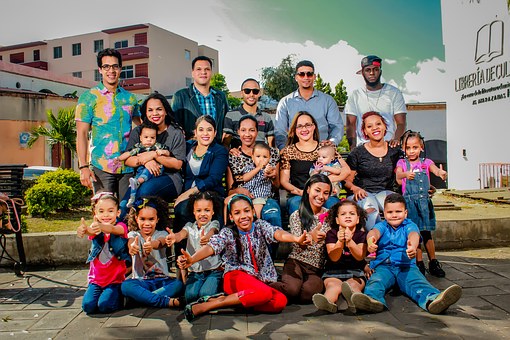
 I know your expectations are high. In your new year, you want to reach the sky. I am sure you are dying to meet your new guy. This new year you feel that you are ready to have a taste of the pie. Well, today keep these expectations at bay, enjoy yourself to the fullest and just let my wishes for you come true. My wish is to have a sister who goes beyond the sky, who meets the most handsome guy and who tastes the sweetest pie.
I know your expectations are high. In your new year, you want to reach the sky. I am sure you are dying to meet your new guy. This new year you feel that you are ready to have a taste of the pie. Well, today keep these expectations at bay, enjoy yourself to the fullest and just let my wishes for you come true. My wish is to have a sister who goes beyond the sky, who meets the most handsome guy and who tastes the sweetest pie. Today you mark your 100th year on the earth. You were once a toddler. You grew to a teenager who made his parents be on their toes. I still remember the story you told us about how you met with the grandmother. You were once naughty. You grew and became the dad of my dad. My wish for you is that you will live long to see your grandson become naughty just like you as they look for a wife.
Today you mark your 100th year on the earth. You were once a toddler. You grew to a teenager who made his parents be on their toes. I still remember the story you told us about how you met with the grandmother. You were once naughty. You grew and became the dad of my dad. My wish for you is that you will live long to see your grandson become naughty just like you as they look for a wife.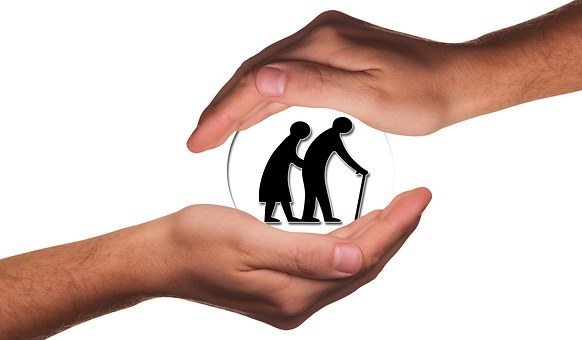
 Do not even think of avoiding sandwich stress and burnout when you are doing everything all by yourself. That is close to impossibility. However, asking for a hand will make the situation easier for you to handle. For example, you could use a family member or a friend who lives near you to bring some hot meal to the care receiver or baby sit your children and take a break. Try to spread the responsibility to other willing family members.
Do not even think of avoiding sandwich stress and burnout when you are doing everything all by yourself. That is close to impossibility. However, asking for a hand will make the situation easier for you to handle. For example, you could use a family member or a friend who lives near you to bring some hot meal to the care receiver or baby sit your children and take a break. Try to spread the responsibility to other willing family members. It is in these groups that you get to share your experiences with people who understand you because they can identify with your situation. You will be made to realize that you are not alone in the sandwich generation and therefore you will love your caregiving work. You could look for local or online support groups depending on what fits your needs best.
It is in these groups that you get to share your experiences with people who understand you because they can identify with your situation. You will be made to realize that you are not alone in the sandwich generation and therefore you will love your caregiving work. You could look for local or online support groups depending on what fits your needs best.